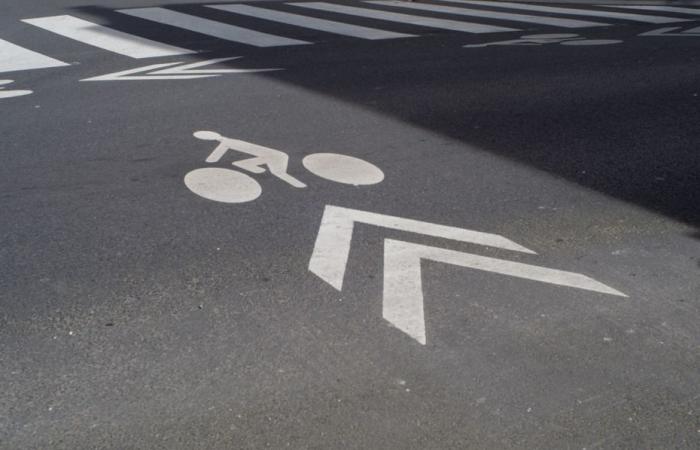For budgetary reasons, the government should abandon the 2023-207 Bicycle Plan. A sum of more than a billion euros of investments planned over five years should not be released. A decision that is making people unhappy in Clermont-Ferrand.
The essentials of the day: our exclusive selection
Every day, our editorial team reserves the best regional news for you. A selection just for you, to stay in touch with your regions.
France Télévisions uses your email address to send you the newsletter “The essentials of the day: our exclusive selection”. You can unsubscribe at any time via the link at the bottom of this newsletter. Our privacy policy
At the end of October, Mediapart announced that the government was about to abandon the 2023-2027 Cycling Plan, for budgetary reasons. Last year, Élisabeth Borne, Prime Minister, unveiled a project of “ 2 billion euros for cycling by 2027 “. The objective was to “ giving every French person access to an ecological mobility solution.” It was “ historical means », insisted Clément Beaune, Minister Delegate in charge of Transport. The abandonment of the Bicycle Plan does not rejoice Serge Fabbro, president of Vélo-Cité 63, an activist association which works in Puy-de-Dôme for the development of the little queen: “Attacking the bike is a bad signal and a bad bet. A cycling policy is built over years. We saw this clearly in Holland. I hope that this sudden stop will not prevent local authorities from getting involved. The funding that is in place to help them make cycling arrangements is important. It is the track that creates the cyclist. It is thanks to investments that provide safety that we can develop cycling. Clermont-Ferrand is the illustration of this because the developments, particularly on Boulevard Sud, have completely boosted cycling”.
For Serge Fabbro; we must develop the place of the bicycle in our daily lives: “The bicycle is one of the pillars of sustainable and carbon-free mobility. There is also walking and carpooling. Cycling is a practical, efficient and healthy alternative means of transportation. It also saves money on public health. It can transform the city through the developments carried out: the cities are much calmer and more pleasant to live in. It transforms the living environment and the way of life. Cycling was seen as a way to slow the progression of greenhouse gases and improve air quality in urban areas. All this will be put to half-mast”. The president of Vélo-Cité 63 fears consequences for smaller municipalities: “Metropolises will undoubtedly continue to develop cycling but the cancellation of the plan risks impacting sparsely populated or peripheral areas. They need this funding to create momentum. Credits were notably provided for project managers, to develop active mobility. It is announced that 400 communities will suffer. Since 2017, bicycle use has increased by around forty percent. In 2030, we were aiming for a 9% modal share of cycling. I don't think we'll make it”.
Flavien Neuvy, vice-president of Clermont Auvergne Métropole, in charge of the cycling master plan, is also concerned about this downturn in the Cycling Plan: “The cancellation of this plan is bad news. Most cities and metropolises are involved in cycling developments to increase daily cycling and to make cyclists safer. Recent news items have shown that cyclists are often put in danger by the irresponsible driving of certain motorists. It is very important to make cyclists as safe as possible with quality facilities. However, these arrangements are very expensive. State support was very important to support us in infrastructure work”.
However, Flavien Neuvy indicates that investments in favor of cycling in the metropolis of Clermont-Ferrand are not threatened: “This cancellation of the Bicycle Plan does not call into question our bicycle strategy in the metropolis. Since 2020, we have decided to accelerate the deployment of cycling infrastructure. We have made it a priority and we are moving forward. We really gained momentum. This will not stop us from moving forward on this subject.”. He is surprised at the bad timing of the decision to attack the Bike Plan: “The Bicycle Plan solicited communities in the form of calls for projects. This rather accompanied large-scale infrastructure. Small municipalities were not the first beneficiaries of this Plan, but rather large metropolises and intermunicipalities. We are in a period where the use of bicycles is increasing. It is when we carry out more work that we cut subsidies. It's incomprehensible”. According to the elected official, the Clermont Auvergne Métropole cycling master plan plans to invest 30 million euros over 10 years.
- -





